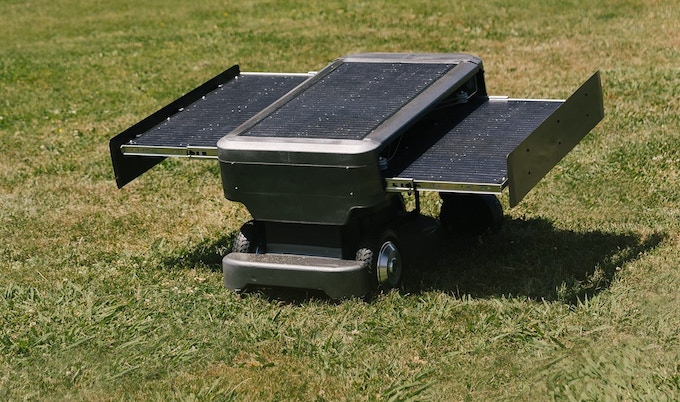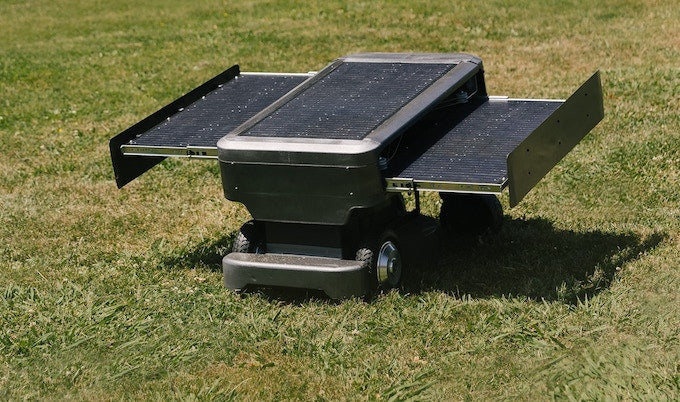https://www.pv-magazine-india.com/2023/04/27/pv-powered-robotic-lawn-mower-from-new-zealand/
PV-powered robotic lawn mower from New Zealand

Sun Scout Pro
Image: Massey AgriFood Digital Lab
From pv magazine Global
A Massey AgriFood Digital Lab team based at Massey University in New Zealand has developed a PV-powered robotic lawn mower.
The Sun Scout Pro features three fully integrated 50 W solar panels that charge a 20 Ah lithium-iron-phosphate (LiFePO4) battery. One of the PV panels is located on top of the robot, while two additional modules are fixed onto a sliding, retractable structure.
“By stripping down the solar module to its essentials and adopting more efficient protective designs in conjunction with our flagship stacked panel configuration, we were able to create lightweight solar panel solutions that are perfect for mobile applications,” the research team says on the product’s website.
The PV system has a maximum power point tracking (MPPT) voltage range between 15 V and 45 V. The MPPT solar charger has an efficiency of over 99% and the maximum solar power input is 400 W. The LiFePO4 battery has a rated voltage of 38,4 V and an energy capacity of 768 Wh. The team claims it features 5,000 charge cycles.
“Assuming that the Sunscout Pro charges its batteries an average of four times per week, which is equivalent to 208 times annually, the guaranteed 5,000 charging cycles would provide up to 24 years of usage,” says the research team.
When the robotic lawn mower’s batteries are low, it slides out its two extra PV panels and tracks the sun for faster recharging. The average battery charging time is four hours at 70% discharge. The device measures 850 mm x 450 mm x 400 mm and weighs 45 kg. Its cutting width is 40 cm and the cutting height is programmable between 25 mm to 75 mm. It mulches grass at a speed of 50 meters per minute, covering an area of 1,200 square meters per charge.
The concept was first developed in 2020 and its feasibility was reportedly confirmed by a Massey University study in 2021. The project underwent prototype testing in December 2022 and a working prototype was completed in January 2023. The Massey University team started setting up assembly lines in New Zealand and Germany in February this year and is now trying to gather customer support through a Kickstarter campaign. If successful, it plans to launch the product in June and start shipments by August.
The products will feature a two-year warranty and cost $,2630 according to the Kickstarter campaign page.
This content is protected by copyright and may not be reused. If you want to cooperate with us and would like to reuse some of our content, please contact: editors@pv-magazine.com.



